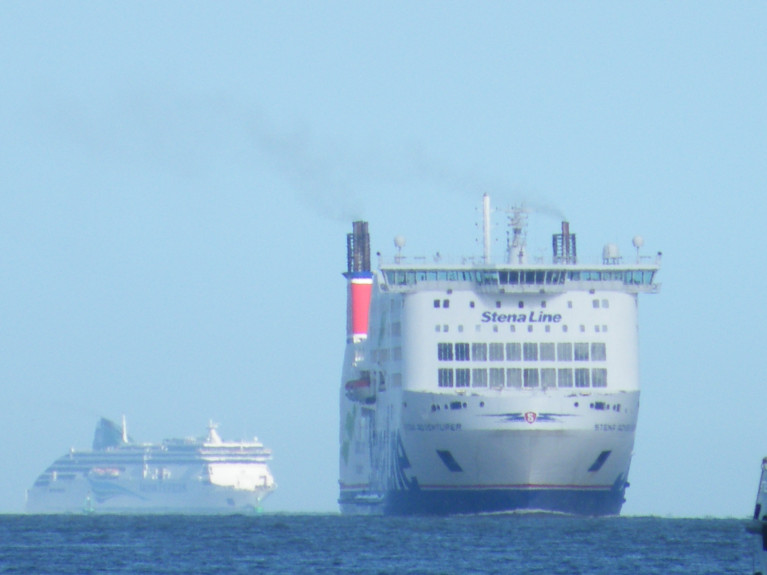Displaying items by tag: Masks
Ferries Face 'Mandatory' Masks on Stena Ships Whereas Already 'Advisable' on Irish Ferries
Operator Stena Line from next week will introduce the mandatory wearing of face coverings for passengers as distinct to Irish Ferries last month's advisory to don such health related attire, writes Jehan Ashmore.
The Covid-19 related measures are intended to safeguard both the health of passengers and crew in addition to ensure maximum safety to those travelling by ferry. Both operators have also issued information on passengers, bookings, amendments and cancellation policies in these times of Covid-19.
Stena Line has said from next Monday, 15 June, the wearing of face coverings will be mandatory whilst in ports or onboard their vessels though with exceptions.
Exceptions to this rule are children under the age of three and anyone with a breathing condition, illness or disability that prevents or hinders them from wearing a face covering.
As for those taking night sailings that arrive on the morning of Monday 15 June, face coverings will be required from departure the night before on Sunday, 14 June.
For furher information see Stena Line homepage and for answers to FAQ's which can be consulted on the operator's Coronavirus information page.
Likewise, Irish Ferries which too is constantly monitoring a rapidly evolving situation in relation to Covid-19 issued an information update of 29th April, which advised passengers must have a face mask / face covering when travelling with the Irish ferry company.
As part of Irish Ferries FAQ click here, the issue of masks according to the Irish authorities now recommend in the wearing a cloth face covering in situations where it is difficult to practice social distancing.
Additionally, it is now mandated by the French Authorities for passengers to wear a face mask when onboard ships in French waters and in Cherbourg port (with children under 11 years exempt).
As Afloat reported earlier today Irish Ferries W.B. Yeats returned to the Irish capital on completion of the first 'cruiseferry' operated Dublin-Cherbourg sailings of the summer which was to start in March but was delayed to the Covid situation. The service finally began on Tuesday with an overnight arrival to Cherbourg yesterday.
In the meantime up to this week, the year-round operated Ireland-France route was maintained during the winter and was extended into Spring. During these months the route was covered by the 'economy' ropax ferry Epsilon.
Further important travel information from the Irish Government's Dept. of Foreign Affairs is available here.
























































